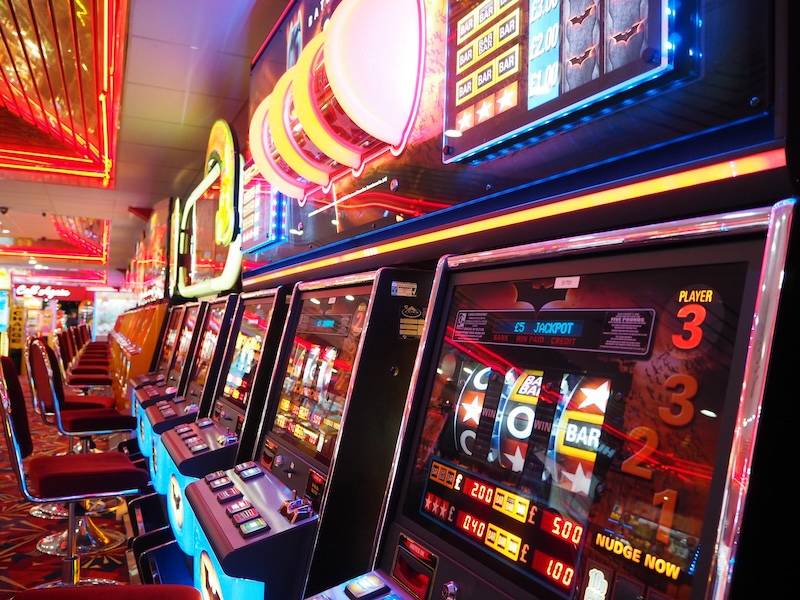5 Reasons Slot Machines Aren’t Cheating

Everything is a conspiracy when you don’t know how anything works. Just because a casino business is an incredibly profitable venue, and because you just can’t seem to hit the jackpot, it’s so easy to assume that the game is rigged against you. However, does someone who is already so favored by the odds really have to cheat?
Imagine playing basketball against your 8-year-old cousin. Would you have to cheat to win? Of course not. The same goes for a slot machine or a casino, with the only difference being that the odds favor them even more heavily. This is not doomsaying or blackpilling, it’s just a basic understanding of odds, probabilities, and how the RNG works.
This, however, is just the tip of the iceberg. From a huge number of players using these machines to make up for any potential casino money loss, all the way to statistics and percentages, here are the top five
Table of Contents
1 The house edge guarantees profit
The magic word here is “edge.” Every slot machine has a built-in advantage for the house, and this isn’t some shady secret. It’s math. The game pays out less than it takes in, over the long run. That margin, even if it’s small, is enough to keep casinos more than profitable.
This edge relies on time, and not on trickery or tampering. With thousands of spins happening every day, the casino doesn’t have to cheat – they just have to let the system run. Even with a few lucky winners, the house still wins overall because of how the percentages are set up.
Players who want to succeed must understand this concept when playing games like slots at online casinos available in the UK. While these casinos offer players impressive bonuses, a variety of themes, and several other great features, every user must learn the basic principles of slots and how the game works on the casino’s side.
That house edge kicks in across thousands of spins, not a single session. So while you might win or lose in one go, the casino knows the odds will balance out eventually. They’re playing a long game, and with millions of spins happening, they don’t need shortcuts to come out ahead.
2 The odds are in their favor
When you spin a slot machine, you’re playing a game of odds – very carefully calculated odds in the casino’s favor. That doesn’t mean every spin is a loss, but it does mean that, over time, the machine keeps more money than it gives out. That’s how it’s designed.
While someone may win big once in a while, that win is funded by hundreds (or thousands) of people losing small amounts. It’s not a conspiracy – it’s just how probability works. The money has to come from somewhere, and it’s usually a steady stream of players betting over and over.
This logic holds up both in brick-and-mortar casinos and online ones. The payout percentages are written into the game, not changed depending on the platform. So no matter where you play, the core math behind your chances stays consistent. That’s part of what makes the system stable.
Even online slot machines available in the UK use the same kind of random number generators found in big-name physical casinos. Many of those digital games are built by the same developers, certified under the same rules, and built to run the same way. The difference is only in where you play them.
3 Rigging breaks trust (and business)
Casinos thrive on repeat business. If people thought the machines were rigged, they’d stop coming. It’s that simple. No one wants to play a game they think is straight-up cheating them. So it’s actually in the casino’s best interest to keep things fair – or at least fair enough to keep people spinning.
This is an industry crawling with regulators, watchdogs, and players who know exactly what to look for. If something’s off, someone’s going to notice. And with social media, bad news spreads fast. The cost of being exposed as dishonest far outweighs any money a rigged machine could make in the short term. So, regardless of whether you’re a government, an organization, or a business, trust takes precedent.
Once trust is broken, it’s hard to rebuild. Casinos depend on the illusion of fairness. Players need to believe they have a chance, even a slim one. Suppose they don’t believe that anymore, they walk. Once people start walking, that revenue stream dries up faster than you’d think.
A shady one-time profit from a rigged machine might feel like a win for the house, but it’s a short-sighted move. Casinos make money by keeping players coming back, not by running them off. Rigging would be the business equivalent of setting your own boat on fire.
4 Regulated by third-party auditors
Online and land-based casinos don’t just run wild with no rules. If they’re licensed, they have to follow strict standards, especially regarding fairness. That includes making sure the slots are doing what they claim to do. It’s not a free-for-all. There are actual rulebooks to follow.
There are third-party companies that specialize in auditing these games. Their whole job is to test the random number generators and payout percentages to confirm that everything lines up with what the casino says. If a game doesn’t meet the standard, it doesn’t get certified. Period.
The penalties for stepping out of line are no joke. Casinos can lose their licenses, face heavy fines, or get completely shut down. That kind of risk is enough to keep even the greediest operator in check. It’s not just about ethics – it’s about survival in a heavily scrutinized industry.
You can even look up these audit results. That’s the crazy part – this stuff isn’t buried in legal documents or hidden behind paywalls. A lot of casinos publish their certifications right on the homepage. If they’re legit, they want you to know. If they’re not, well… that silence says a lot too.
5 Randomness can feel unfair
One of the strangest things about real randomness is that it doesn’t always feel random. You might go on a losing streak and assume something shady’s going on, but that’s actually how randomness behaves. It’s full of streaks, clusters, and patterns that don’t make sense until you zoom out.
There’s a big disconnect between what we think is “fair” and what actually is. People expect fair games to give them a win every so often, just enough to feel good about. But randomness doesn’t care about your expectations. It could go cold for hours or hit a jackpot out of nowhere.
Everything is a conspiracy when you don’t know how anything works, but there’s also a deeper problem here. You see, people find the idea of intentionalism (everything happens with a sapient purpose) comforting, even if it goes against them. There’s something about chance and randomness that terrifies them, so they draw connections to protect themselves.
Our brains love patterns. So when you’re losing, your mind starts building stories around it. You remember every bad spin, every near miss, and every time you felt robbed. That emotional impact builds fast and makes it feel like something fishy is happening, even when it’s all by the book.
Wrap up
As you can see, it’s not about being rigged – it’s about how we perceive risk and reward. When your brain’s chasing dopamine and not getting the hit, it looks for something to blame, and blaming the machine is way easier than accepting that, sometimes, the odds just aren’t in your favor that day.
Read Also:

The Best Payment Methods for Quick Casino Withdrawals
In the fast-paced world of online casinos, players often want to receive their winnings as…

Mobile Gaming and the Future of Online Casinos
The landscape of online gambling has undergone significant transformations over the past decade. As technology…

How No-KYC Casinos Are Changing the Online Gambling Landscape
Dice and Casino Chips on a Laptop - Free Stock Image The online gambling world…

How Online Casino Loyalty Programs Keep Players Engaged and Encourage Repeat Visits
Poker chips and dice on a laptop - Free Stock Image Online casinos face intense…

Battle of the Bankroll – Traditional vs Digital Casino Payment Methods
IMAGE: https://www.pexels.com/photo/casino-table-in-close-up-view-4677402/ Smart casino players know that choosing deposit and withdrawal methods isn’t just a…

Understanding the Importance of Secure Payment Methods for Online Gambling
Dice and casino chips on a laptop - Free Stock Image The growth of online…